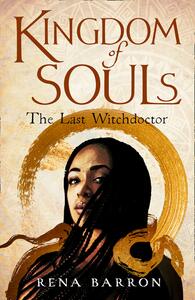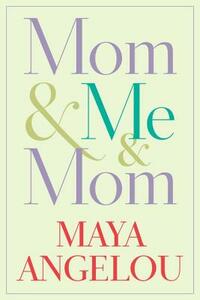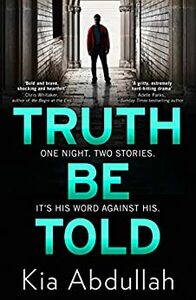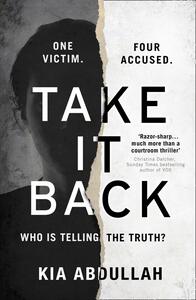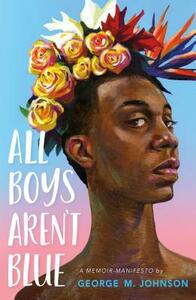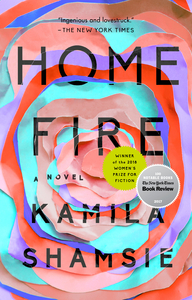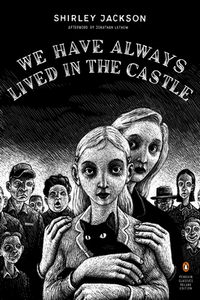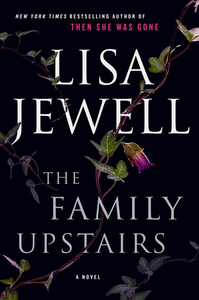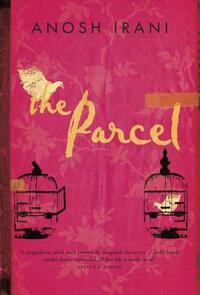You need to sign in or sign up before continuing.
Take a photo of a barcode or cover
loiscc's Reviews (313)
From stories about university life, workplace dissatisfaction, family, online dating and holiday-making, John takes us on a journey through the events in her life that have led to her eventual singledom. At times gut-busting in its hilarity and at times sombre, these recollections explore the dichotomy of loneliness and independence, synonymous with singleness. It is also probing in the way it considers how language associated with ‘growing up’ always seems to point to coupledom. I thought reflective moments such as this and others like it were perfect in terms of rethinking the societal norms of being single.
Self-Contained is a funny, intelligent and laid-back book that I thoroughly enjoyed reading.
Full review: https://lochanreads.com/2021/07/16/blog-tour-review-self-contained-scenes-from-a-single-life-by-emma-john/
Self-Contained is a funny, intelligent and laid-back book that I thoroughly enjoyed reading.
Full review: https://lochanreads.com/2021/07/16/blog-tour-review-self-contained-scenes-from-a-single-life-by-emma-john/
Kingdom of Souls is the first book in a young adult high fantasy series, inspired by African mythology and folklore. The main character, Arrah, comes from a powerful family of witchdoctors, but at 18 years of age, Arrah's magic has still not manifested. But when a string of mysterious child kidnappings take place in the Kingdom of Tamar and formerly vanquished demons threaten to break loose once more, Arrah will stop at nothing to protect the ones she loves.
Barron weaves a world of unending mystery in this sibilant and adventurous book. The world-building wasn't as exposition-heavy as I've read in other books; I like the way this fantasy kingdom developed with the story and it was bursting with unexpected twists and turns and fiery action.
At times, it felt cumbersome to read and the torrent of Arrah's constant anguish became tiring. Reading Kingdom of Souls made me appreciate how much I enjoy fantasy novels with multiple POVs. With the exception of a few deviations, the story is told solely through the perspective of Arrah, but there were other characters and other periods in this story that I wanted to know more about. I wanted to feel more invested in the other characters beyond the limiting eyes of Arrah alone.
If you enjoy first-person fantasies, I would recommend this book to you, but if you're anything like me; trying to bring a whole fictional world to life, including its magic systems, it customs and histories as well as developing a vast set of characters, all through the eyes of one character is incredibly remissive i.e. it doesn't work. It may work better in other fantasy novels, I'm just yet to read them. For me, Arrah's perspective alone didn't do the entirety of the setting justice and honestly, even though I empathised and supported her, there were times when I needed a break from her.
But to end on a positive note, I thought the ending was really strong and it renewed my excitement about the book. It ended on a note of finality but also in such a way that builds up anticipation and lays a clear framework for the sequel.
Barron weaves a world of unending mystery in this sibilant and adventurous book. The world-building wasn't as exposition-heavy as I've read in other books; I like the way this fantasy kingdom developed with the story and it was bursting with unexpected twists and turns and fiery action.
At times, it felt cumbersome to read and the torrent of Arrah's constant anguish became tiring. Reading Kingdom of Souls made me appreciate how much I enjoy fantasy novels with multiple POVs. With the exception of a few deviations, the story is told solely through the perspective of Arrah, but there were other characters and other periods in this story that I wanted to know more about. I wanted to feel more invested in the other characters beyond the limiting eyes of Arrah alone.
If you enjoy first-person fantasies, I would recommend this book to you, but if you're anything like me; trying to bring a whole fictional world to life, including its magic systems, it customs and histories as well as developing a vast set of characters, all through the eyes of one character is incredibly remissive i.e. it doesn't work. It may work better in other fantasy novels, I'm just yet to read them. For me, Arrah's perspective alone didn't do the entirety of the setting justice and honestly, even though I empathised and supported her, there were times when I needed a break from her.
But to end on a positive note, I thought the ending was really strong and it renewed my excitement about the book. It ended on a note of finality but also in such a way that builds up anticipation and lays a clear framework for the sequel.
A touching memoir about motherhood, Mom & Me & Mom unveils the early life of the influential Maya Angelou, who is most known for the persevering legacy she left behind as a poet and civil rights activist.
Angelou's memoir covers her early life growing up with her paternal grandmother in Stamps, Arkansas, to her early adolescence when she and her older brother Bailey are sent to live with their birth mother in San Francisco to her adult life as a single mother, dancer, singer and film director.
This short memoir/autobiography is a testament to Angelou's enduring perseverance at a time when it was especially difficult to be a black woman in America. Angelou's intimately endearing recollections of her tenacious mother, Vivien Baxter, reminds us that we will never outgrow needing our mothers.
Angelou's memoir covers her early life growing up with her paternal grandmother in Stamps, Arkansas, to her early adolescence when she and her older brother Bailey are sent to live with their birth mother in San Francisco to her adult life as a single mother, dancer, singer and film director.
This short memoir/autobiography is a testament to Angelou's enduring perseverance at a time when it was especially difficult to be a black woman in America. Angelou's intimately endearing recollections of her tenacious mother, Vivien Baxter, reminds us that we will never outgrow needing our mothers.
tw: homophobia, rape, outing
This razor-sharp domestic thriller is about a 17-year-old Asian senior called Kamram, who attends the very affluent Hampton's college for boys. After his weekend plans get cancelled, he ends up staying on campus and attending an alcohol-fuelled party with his friends. In his inebriated state, Kamran is raped by one of his peers and battles over whether to report the incident to police, which he eventually does. It is through this incident report that Kamram meets, Zara Kaleel, a former lawyer suffering an addiction problem. Together they stele themselves against the inevitable storm that comes from the taboo of male rape within the Muslim community.
This book is the second in the two-part 'Zara Kaleel' series by Kia Abdubllah, but you don't have to read the first novel (Take it Back) in order to fully appreciate this book. Truth be Told was such an unshakeable and significant read. Not only does it have a tense, hair-raising plot with a mouth gaping plot twist, but it is also equipped with a forceful message.
Truth be Told isn't just a brilliant story, it is also a denouncement of 'the cage' of hypermasculinity, the stigma of male rape and the devastating effects that come with the fear of having one's sexuality outed.
This razor-sharp domestic thriller is about a 17-year-old Asian senior called Kamram, who attends the very affluent Hampton's college for boys. After his weekend plans get cancelled, he ends up staying on campus and attending an alcohol-fuelled party with his friends. In his inebriated state, Kamran is raped by one of his peers and battles over whether to report the incident to police, which he eventually does. It is through this incident report that Kamram meets, Zara Kaleel, a former lawyer suffering an addiction problem. Together they stele themselves against the inevitable storm that comes from the taboo of male rape within the Muslim community.
This book is the second in the two-part 'Zara Kaleel' series by Kia Abdubllah, but you don't have to read the first novel (Take it Back) in order to fully appreciate this book. Truth be Told was such an unshakeable and significant read. Not only does it have a tense, hair-raising plot with a mouth gaping plot twist, but it is also equipped with a forceful message.
Truth be Told isn't just a brilliant story, it is also a denouncement of 'the cage' of hypermasculinity, the stigma of male rape and the devastating effects that come with the fear of having one's sexuality outed.
Take It Back is an intense legal/crime thriller and the first in a two-part series, preceeded by the book Truth be Told (which I rated 5 glittering stars btw!). This book is scathing and distressing, with an unabated message.
tw: gang rape, bullying, violent abuse, racism, gaslighting, drug addiction
The story follows 16-year-old Jodie Wolfe, a low-class white girl from East London whose disability means that she has a limp when she walks, a speech impediment and most noticeably, a malformed face. Jodie is gang raped by a group of Bengali and Pakistani Muslim teenage boys whom she goes to school with. She seeks the help of former barrister-turned-sexual victims support worker, Zara Kaleel, who is also of Pakistani Asian descent.
Zara agrees to help Jodie pursue justice in court despite the heart-breaking abuse she suffers from her family and community for standing with a white girl over 'her own people.'
I thought Take it Back was an incredible legal thriller, it had the steely grit of realist contemporary that I love and succeeded in making me feel unbridled indignation at the many injustices that took place. This book addresses anti-Muslim sentiment in the UK, ableist discrimination and misogyny. It also ponders the conflict between having a tribal sense of community and loyalty to one's own people even in the face of wrongdoing, and the knowledge that the criminal actions of a few people from a marginalised group is a reflection of the entire community.
tw: gang rape, bullying, violent abuse, racism, gaslighting, drug addiction
The story follows 16-year-old Jodie Wolfe, a low-class white girl from East London whose disability means that she has a limp when she walks, a speech impediment and most noticeably, a malformed face. Jodie is gang raped by a group of Bengali and Pakistani Muslim teenage boys whom she goes to school with. She seeks the help of former barrister-turned-sexual victims support worker, Zara Kaleel, who is also of Pakistani Asian descent.
Zara agrees to help Jodie pursue justice in court despite the heart-breaking abuse she suffers from her family and community for standing with a white girl over 'her own people.'
I thought Take it Back was an incredible legal thriller, it had the steely grit of realist contemporary that I love and succeeded in making me feel unbridled indignation at the many injustices that took place. This book addresses anti-Muslim sentiment in the UK, ableist discrimination and misogyny. It also ponders the conflict between having a tribal sense of community and loyalty to one's own people even in the face of wrongdoing, and the knowledge that the criminal actions of a few people from a marginalised group is a reflection of the entire community.
All Boys Aren't Blue is such a heartfelt book! It's described as a young adult memoir cum manifesto because of how the writer uses their own experience as growing up as a queer black child in New Jersey to provide positive affirmations for the queer youth of today.
Johnson writes with an openness that comes from a place of vulnerability and honesty. I loved the wholesome way in which he empahises the importance of family, especially if you're so lucky as to have that support system of accepting people around you, which they are.
I would've loved this book even more if it quoted some of the sources it, meaning that I don't have to dig them out myself. Also, the final chapter which shares its name with the title of the book felt far too rushed for me. Johnson explains why they are not 'blue' and what that mentality signifies to them but that discussion took up all of two paragraphs and lacked a certain robustness.
All in all, I thought this was a far-reaching memoir and I'm excited to hear that there are talks of a TV-adaptation coming out soon!
Johnson writes with an openness that comes from a place of vulnerability and honesty. I loved the wholesome way in which he empahises the importance of family, especially if you're so lucky as to have that support system of accepting people around you, which they are.
I would've loved this book even more if it quoted some of the sources it, meaning that I don't have to dig them out myself. Also, the final chapter which shares its name with the title of the book felt far too rushed for me. Johnson explains why they are not 'blue' and what that mentality signifies to them but that discussion took up all of two paragraphs and lacked a certain robustness.
All in all, I thought this was a far-reaching memoir and I'm excited to hear that there are talks of a TV-adaptation coming out soon!
Home Fire is a searing, weight-inducing book told in multiple POVs. It is set in the working class London neighbourhood, Wembley (scarily close to home) where orphaned siblings, Isma and the much younger twins Aneeka and Parvaiz have to deal with the daily stresses of being Muslim, especially given the legacy of their jihadi father. Whilst the two sisters, Isma and Aneeka try to live a normal life as best they can, Parvaiz is manipulatively groomed into following in his father's footsteps.
I thought this book was intense, sentient and remarkably written. I loved Anneka' POV towards the end because the writing style becomes disjointed in a purposeful way, almost as though mimicking her state of turmoil. Home Fire candidly addresses racism and anti-Muslim sentiment in Britain but it also explores such things as ignorance as well, particularly concerning impressionable boys like Parvaiz who many would be quick to condemn.
4.5 stars
I thought this book was intense, sentient and remarkably written. I loved Anneka' POV towards the end because the writing style becomes disjointed in a purposeful way, almost as though mimicking her state of turmoil. Home Fire candidly addresses racism and anti-Muslim sentiment in Britain but it also explores such things as ignorance as well, particularly concerning impressionable boys like Parvaiz who many would be quick to condemn.
4.5 stars
We have always lived in the castle is an eerily mysterious novel set in quiet, gossiping town. Two sisters called Merricat and Constance and their elderly uncle Julien, live a hermit-like existence in a secluded castle away from the townsfolk that despise them. That is until their duplicitous cousin Charles comes to visit with seemingly good intentions.
This book has a sense of the macabre that stems from its use of gothic imagery and its subtlety. There is also an underlying mystery involving the Blackwood family which unravelled in a suspense-ridden way. I also enjoyed the idiosyncratic characterisation such as uncle Julien's eccentricity. I was hoping for something less subtle and more eerie hence my rating, but an otherwise disquieting story.
This book has a sense of the macabre that stems from its use of gothic imagery and its subtlety. There is also an underlying mystery involving the Blackwood family which unravelled in a suspense-ridden way. I also enjoyed the idiosyncratic characterisation such as uncle Julien's eccentricity. I was hoping for something less subtle and more eerie hence my rating, but an otherwise disquieting story.
The Family Upstairs is a psychological murder mystery in which Libby Jones, newly turned 25-years-old has just inherited a mansion in the affluent Chelsea London area. She soon learns about a disturbing past tied to her new mansion, one involving the mysterious death of her biological parents and the ominous family who moved in with them.
This is a suspense-building, plot-driven thriller that perfectly created an air of unease and mystery. It kept me on edge and I enjoyed the multiple POV structure with which the story was told.
I didn't care very much for the characters except for Phineas and his villainous father because I felt like their characterisation held my intrigue more. The rest of the cast was interesting in a tedious way, especially Libby who was a combination of annoying and bland. There were a lot of threads in this story that built up eager anticipation for the BIG reveal, the jaw-dropping plot twist, but which actually ended up being a very small, anti-climatic reveal.
This is a minor grouse but the ending felt far too genial for me. I'm happy things turned out the way they did but the general mood throughout the story was altogether ominous and dark so the ending seemed a bit incongruous but that could just be my love of tragedy talking.
Overall though, I would recommend The Family Upstairs. It is a classic thriller that will constantly keep you guessing.
This is a suspense-building, plot-driven thriller that perfectly created an air of unease and mystery. It kept me on edge and I enjoyed the multiple POV structure with which the story was told.
I didn't care very much for the characters except for Phineas and his villainous father because I felt like their characterisation held my intrigue more. The rest of the cast was interesting in a tedious way, especially Libby who was a combination of annoying and bland. There were a lot of threads in this story that built up eager anticipation for the BIG reveal, the jaw-dropping plot twist, but which actually ended up being a very small, anti-climatic reveal.
This is a minor grouse but the ending felt far too genial for me. I'm happy things turned out the way they did but the general mood throughout the story was altogether ominous and dark so the ending seemed a bit incongruous but that could just be my love of tragedy talking.
Overall though, I would recommend The Family Upstairs. It is a classic thriller that will constantly keep you guessing.
tw: child abuse, rape, transphobia
Set in India's red light district in Bombay, The Parcel is a distressing story about the life of a trans woman or a 'hijra' called Madhu who was formerly a sex worker but now in her forties, gets by as a beggar. Until one day, she receives a call from a prominent brothel owner called Padma who tasks her with the job of preparing the young girl Kinjal, for a life in prostitution. The story is a brutal depiction of what life is like for the many trans/intersex women and abandoned young girls who have been forced into a life of prostitution.
I love the way this book explores the themes of mother-daughter and sisterly relationships, such as the abusive but heartening bond that grows between Madhu and Kinjal. It was difficult to read about the ways in which Madhu abuses Kinjal and how the former was abused by her gurumai before but there is also an underlying feeling of solidarity and kinship borne of the abuser's irreparable trauma. This trauma is mostly explored through Madhu's difficult experience as a hijra, which in India is someone who constantly has to face the duplicity of being revered for the blessings they bestow but also being reviled for their difference.
The story is mostly slow-paced and linear but there are some flashbacks which I thought supplemented the character development really well. It was really hard to fault apart from the sometimes snail-like progression of the plot. Overall I thought The Parcel was a polarising book, both callous and heartfelt.
Set in India's red light district in Bombay, The Parcel is a distressing story about the life of a trans woman or a 'hijra' called Madhu who was formerly a sex worker but now in her forties, gets by as a beggar. Until one day, she receives a call from a prominent brothel owner called Padma who tasks her with the job of preparing the young girl Kinjal, for a life in prostitution. The story is a brutal depiction of what life is like for the many trans/intersex women and abandoned young girls who have been forced into a life of prostitution.
I love the way this book explores the themes of mother-daughter and sisterly relationships, such as the abusive but heartening bond that grows between Madhu and Kinjal. It was difficult to read about the ways in which Madhu abuses Kinjal and how the former was abused by her gurumai before but there is also an underlying feeling of solidarity and kinship borne of the abuser's irreparable trauma. This trauma is mostly explored through Madhu's difficult experience as a hijra, which in India is someone who constantly has to face the duplicity of being revered for the blessings they bestow but also being reviled for their difference.
The story is mostly slow-paced and linear but there are some flashbacks which I thought supplemented the character development really well. It was really hard to fault apart from the sometimes snail-like progression of the plot. Overall I thought The Parcel was a polarising book, both callous and heartfelt.

